1. “Piano Man” – Billy Joel
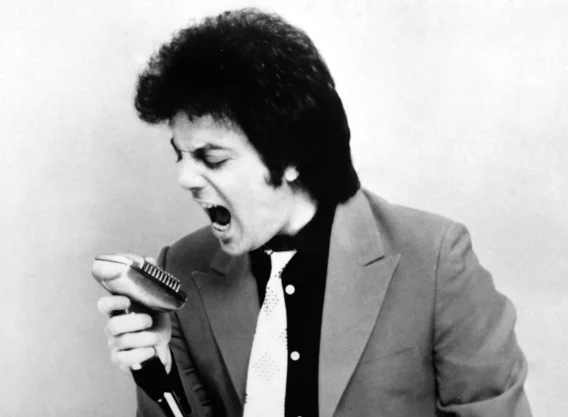
At first listen, Piano Man seems like a warm, nostalgic ballad. Its upbeat melody and sing-along quality make it a popular tune at bars and parties, with Billy Joel playing the role of the empathetic piano man, serenading a room full of lonely souls. But beneath the surface, the lyrics reveal a much darker reality. The characters Joel sings about are trapped in lives of quiet desperation, from the “waitress practicing politics” to the “businessman slowly getting stoned.” Each one is trying to escape their own personal woes, and the song ends on a bittersweet note as the narrator himself becomes part of the cycle.
The catchy piano riff and sing-along chorus might make us forget that this song is essentially about people drowning in their own melancholy. Despite the seemingly joyful rhythm, Piano Man is a poignant reflection of life’s struggles, loneliness, and dreams unfulfilled. It’s a reminder that sometimes, even the happiest sounds can be hiding the darkest of stories.
2. “Don’t Stop ‘Til You Get Enough” – Michael Jackson
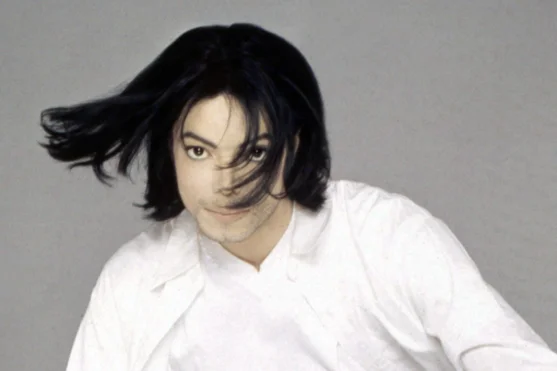
With its infectious disco beat, Don’t Stop ‘Til You Get Enough exudes energy and joy, making it a go-to for dance floors everywhere. The rhythm is undeniable, and Michael Jackson’s voice is pure joy as he encourages everyone to keep moving. But when you listen closely to the lyrics, there’s an underlying sense of obsession and excess. The singer sings about a wild passion that borders on mania, saying things like “the force is with you” and “it’s just a love thing,” implying that there’s an uncontrollable drive behind the fun.
The upbeat tune hides a story about losing control and being consumed by desire. Jackson’s voice might be lighthearted, but the lyrics convey a darker message of addiction and the dangerous allure of pushing past limits. It’s a dance anthem, but also a cautionary tale about the thin line between fun and obsession.
3. “I Will Survive” – Gloria Gaynor

One of the ultimate anthems of empowerment, I Will Survive is often heard at celebrations and sing-alongs, with its bouncy rhythm and uplifting chorus. The song tells the story of a woman who rises above a painful breakup, declaring her strength and resilience. However, if you dig deeper into the lyrics, the dark undertones emerge. The line “It took all the strength I had not to fall apart” reveals the emotional toll the experience has taken, and the feelings of betrayal and heartbreak are palpable.
While the song’s tone may be triumphant, its roots are deeply embedded in pain and loss. The joyous refrain “I will survive” might mask the raw anguish the protagonist has endured, making it a perfect example of how a seemingly happy song can hold onto tragic undertones.
4. “Crocodile Rock” – Elton John

With its nostalgic, feel-good melody, Crocodile Rock is often remembered as a fun, carefree anthem. Elton John’s energetic delivery and the lively piano riff are enough to make anyone want to dance. But as you listen closely to the lyrics, it becomes clear that the song is about the passing of time and the fading of youth. The narrator looks back at a time when he felt alive and carefree, but now he’s stuck in the past, longing for a time that will never return.
The upbeat tune disguises the melancholy of remembering a lost, carefree love, and the sense of longing for days that have slipped away. Crocodile Rock might sound like a celebration of youth, but it’s really a lament for the things we can’t hold on to forever.
5. “Seasons in the Sun” – Terry Jacks
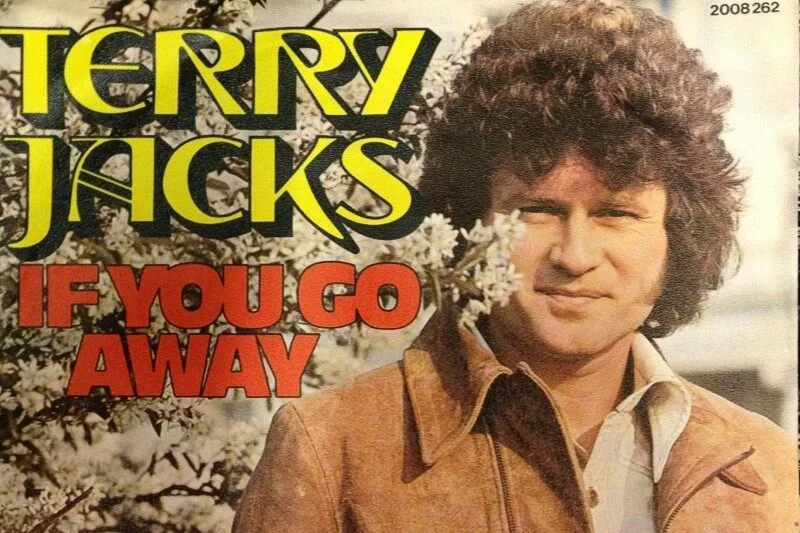
On the surface, Seasons in the Sun is a gentle, reflective song about saying goodbye and cherishing moments with loved ones. Its soft melody and Terry Jacks’ heartfelt delivery make it sound like a sweet farewell. But the truth behind the song is far darker. It’s written from the perspective of a person who knows they are dying, bidding farewell to their friends, family, and even their beloved “sweetheart.” The song’s chorus, “We had joy, we had fun, we had seasons in the sun,” makes it seem almost like a happy memory, but the deeper themes of death and separation are unmistakable.
What seems like a peaceful, nostalgic tune is, in fact, a somber meditation on the inevitability of loss and the pain of leaving loved ones behind. The warmth of the melody only emphasizes the sadness of the words, making it one of the most emotionally complex songs of the ’70s.
6. “Jungle Boogie” – Kool & The Gang
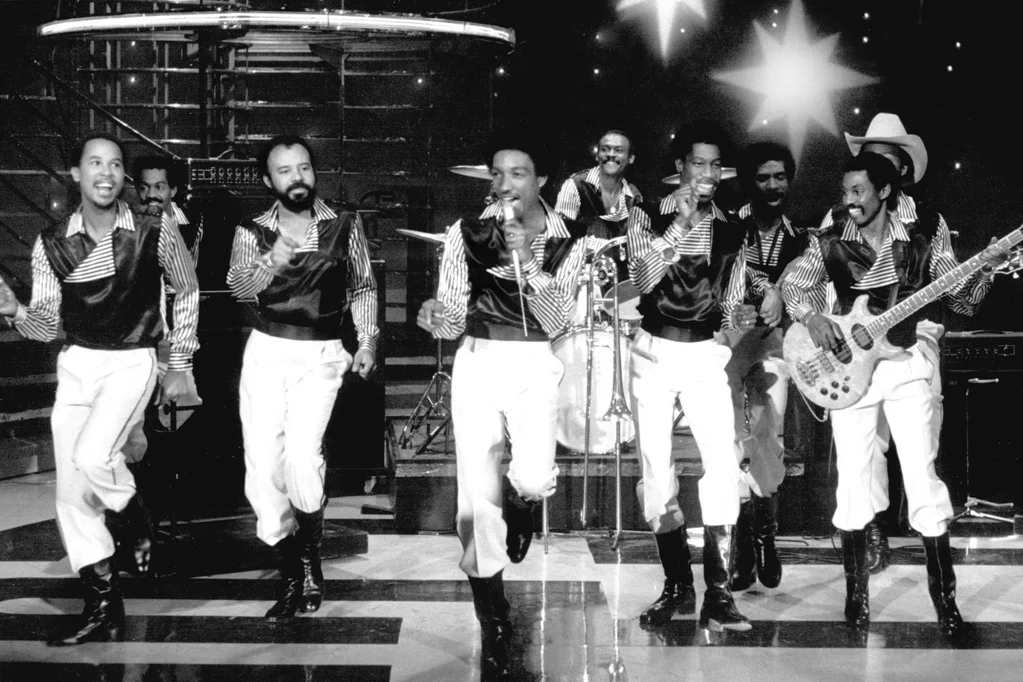
With its funky groove and infectious energy, Jungle Boogie is a track that gets people moving. The brass section blares, the bass thumps, and the lyrics invite everyone to “get down” and “shake it.” However, a closer look at the song’s meaning reveals a much darker side. The lyrics speak to the chaotic energy of life in the “jungle,” which is often interpreted as a metaphor for the struggles of inner-city life, complete with violence and survival.
The bouncy rhythm might make you want to party, but the underlying tension in the lyrics speaks to real issues of crime, fear, and social unrest. Jungle Boogie may be a dancefloor favorite, but its dark social commentary is often overlooked beneath the surface of its funky beats.
7. “Rock Lobster” – The B-52’s
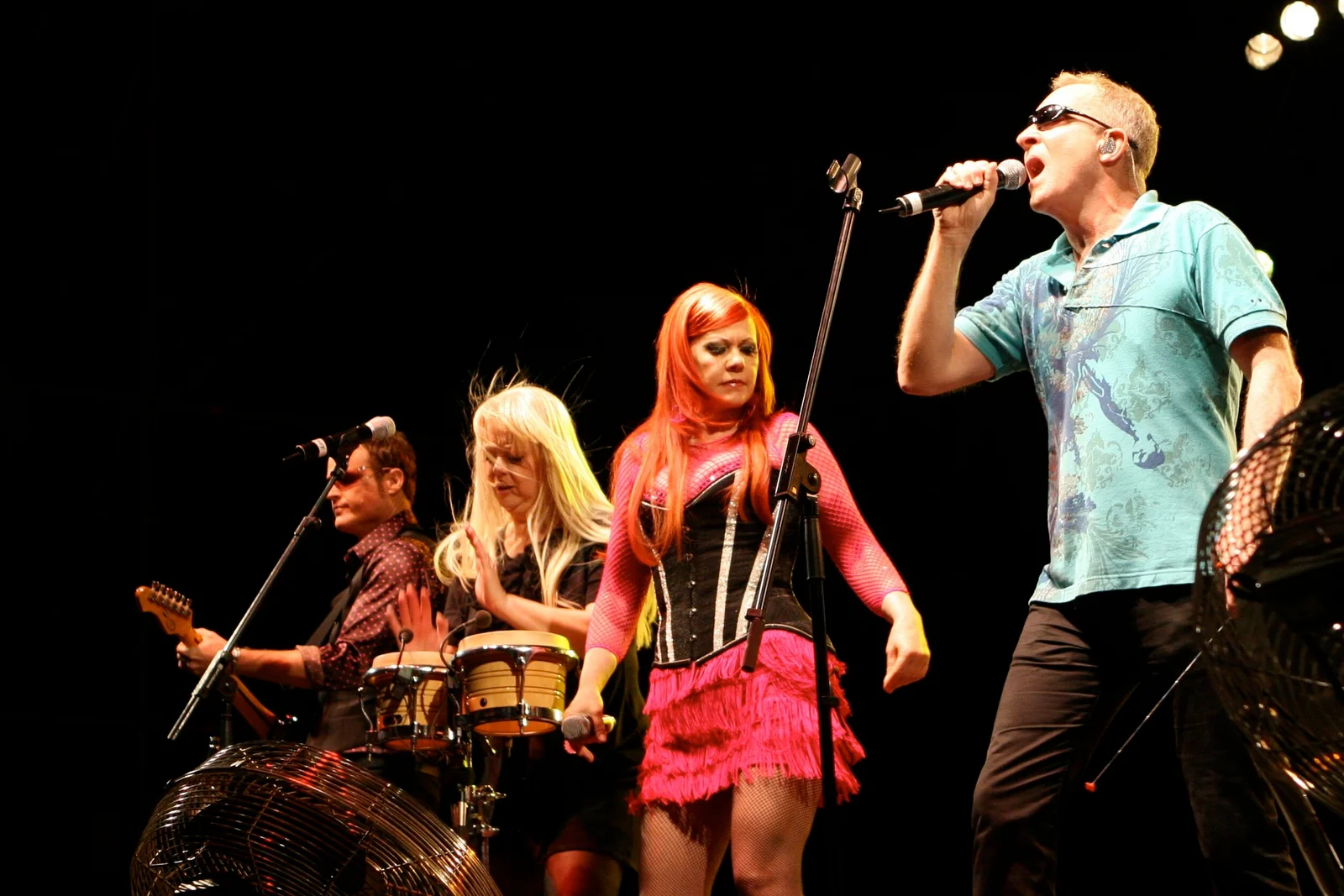
At first glance, Rock Lobster seems like a quirky, fun tune with its bouncy rhythm and offbeat lyrics. The song tells a nonsensical tale about a party where “rock lobsters” appear, but if you listen closely, there’s an unsettling edge to the lyrics. There are references to “dragging” and “freaking out” under the ocean, which could symbolize a deeper sense of discomfort or alienation. The band’s bizarre, playful delivery masks the strange, almost dystopian imagery at play.
What seems like a carefree, fun track is actually a dive into the surreal, with strange and disorienting visions beneath the surface. It’s a prime example of how the ’70s counterculture loved to wrap dark ideas in fun, seemingly lighthearted packages.
8. “American Pie” – Don McLean
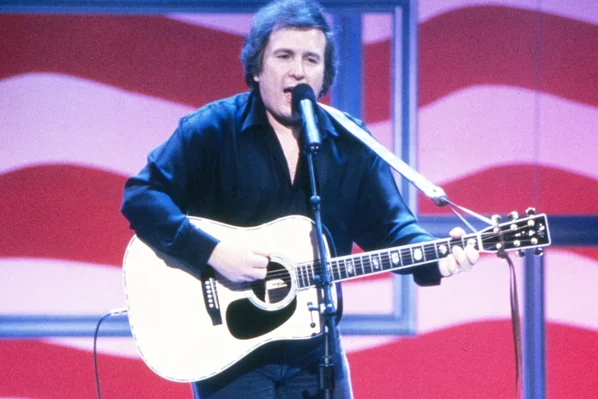
American Pie is often seen as a nostalgic reflection on the loss of innocence, with its catchy chorus and vivid imagery of a time “when the music died.” But when you really dig into the song, you realize it’s a commentary on the turbulent times McLean was living through. The lyrics reference cultural upheaval, political unrest, and the disillusionment that followed the death of Buddy Holly. The idea of “the day the music died” symbolizes the end of an era, the loss of youthful optimism, and the dark shift in American culture.
The upbeat tune contrasts sharply with the heavy themes of tragedy, societal breakdown, and the fading of an idealized America. American Pie might make you want to sing along, but it’s a song filled with nostalgia for a time that was irreparably lost.
9. “Maggie May” – Rod Stewart

The folk-rock classic Maggie May seems like a carefree song about a young man who’s seduced by an older woman, with Rod Stewart’s raspy voice making it feel almost playful. But as the song unfolds, the true nature of the relationship is revealed. The protagonist is stuck in a one-sided affair with “Maggie,” and while the narrator tries to find meaning in the romance, there’s an overwhelming sense of regret and disappointment. The lyrics speak to the confusion and heartache of young love, where everything seems right in the moment but leaves lasting scars.
What starts as a fun tune about a youthful fling turns into a painful reflection on emotional exploitation and lost innocence. Maggie May captures the complexity of relationships and how they can sometimes leave us feeling more broken than when we started.
10. “The Night the Lights Went Out in Georgia” – Vicki Lawrence
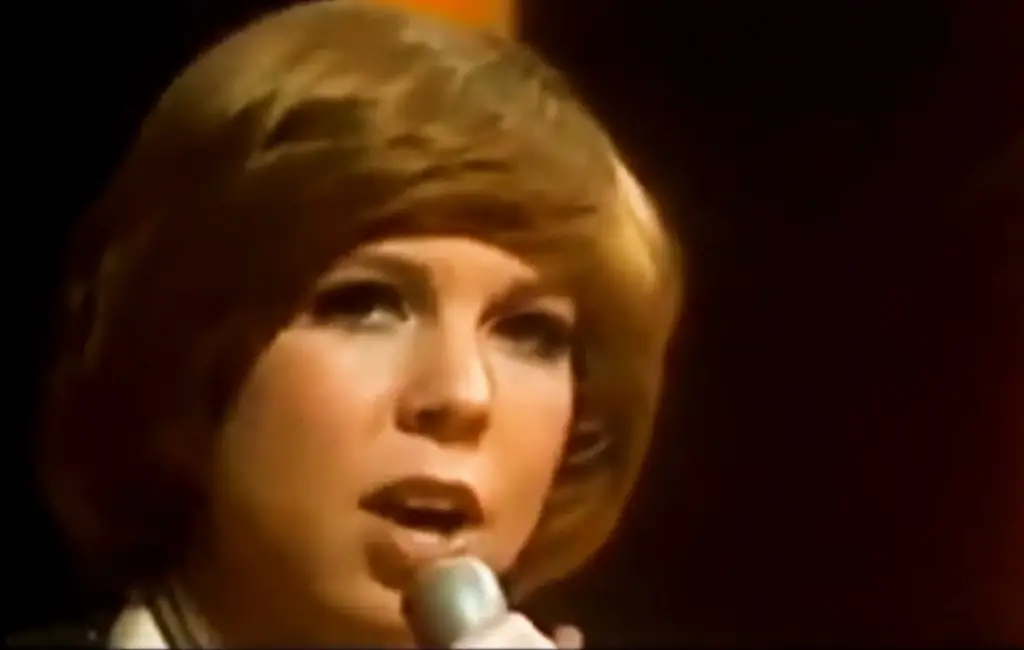
A song that mixes southern gothic storytelling with a catchy melody, The Night the Lights Went Out in Georgia tells a tale of betrayal, murder, and vengeance. While the chorus might have you tapping your feet, the lyrics tell a dark, twisted story. The protagonist’s brother is wrongfully accused of a crime he didn’t commit, only to have the real killer revealed at the end. The song’s upbeat sound contrasts sharply with its tragic, morally ambiguous story of justice and revenge.
The contrast between the song’s joyful melody and the dark, complex narrative makes it a perfect example of how a seemingly cheerful tune can disguise a tale of deep, tragic betrayal. The upbeat rhythm is a perfect mask for the grim story of crime and punishment at its core.
11. “Leroy Brown” – Jim Croce
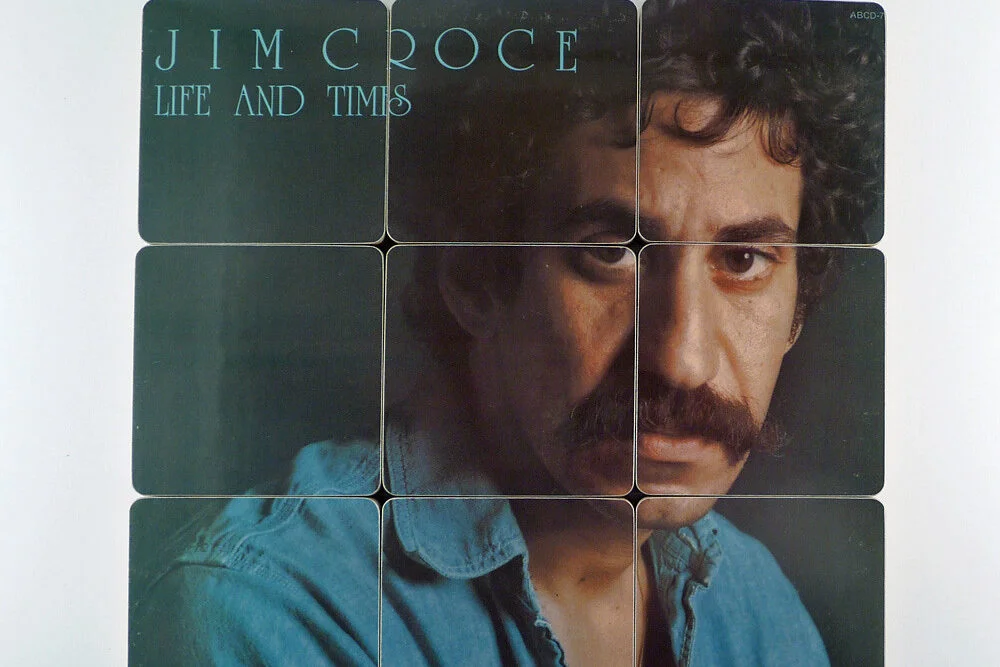
Jim Croce’s Bad, Bad Leroy Brown is often remembered as a fun, rollicking song with its catchy chorus and upbeat rhythm. It tells the story of Leroy Brown, a tough, cocky guy who seems to have it all until he meets his match. The fun, almost playful tone of the song masks a story of arrogance, violence, and downfall. Leroy is the “baddest man in the whole damn town,” but his overconfidence leads to his tragic end when he gets beaten by a man even tougher than him.
While the song’s rhythm might make you think it’s just a tale of a bad guy getting his comeuppance, it’s actually a dark commentary on hubris and the consequences of living a violent, reckless life. Leroy Brown might sound like a fun country tune, but it’s filled with the grim realities of pride and violent retribution.
12. “The Loco-Motion” – Grand Funk Railroad
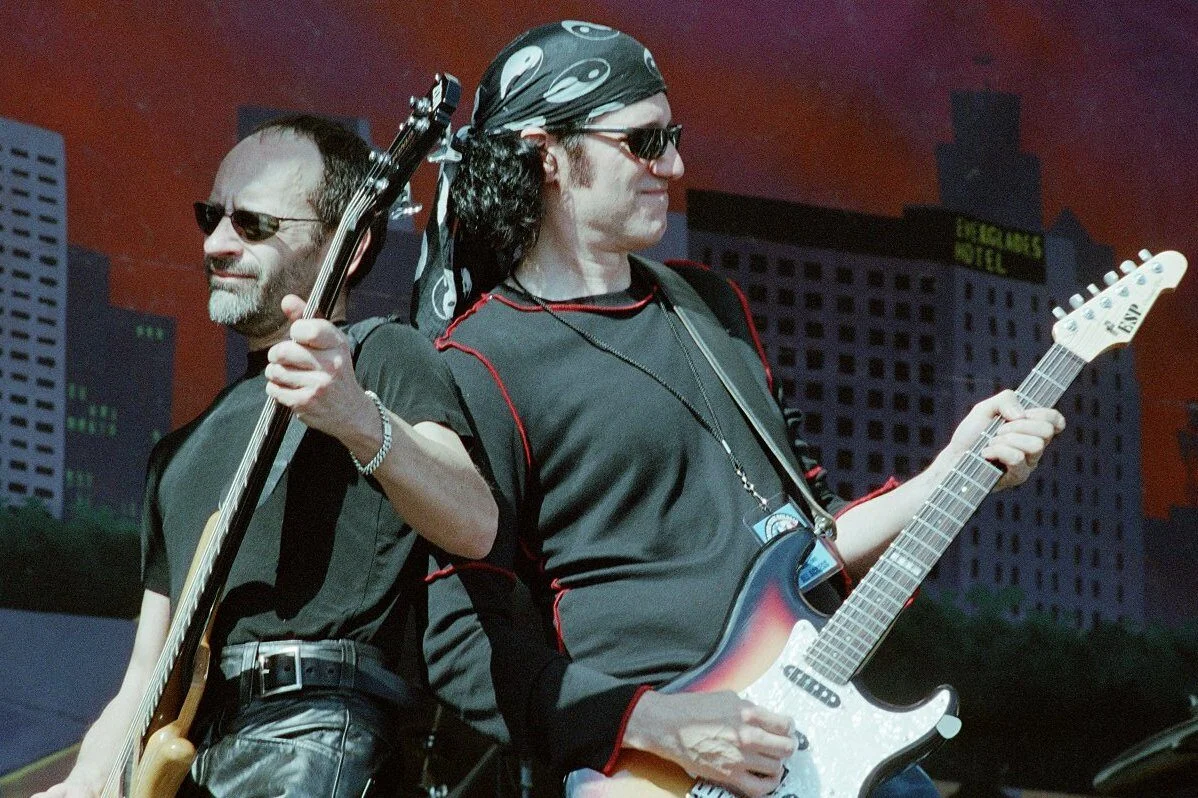
The Loco-Motion is often remembered as an infectious and energetic tune, with its catchy beat and easy-to-follow lyrics encouraging everyone to “do the loco-motion.” It’s an anthem for dancing and having fun, and its upbeat sound makes you want to get up and move. But under the surface, the song’s lyrics are a little darker than they first appear. The protagonist is encouraging someone to “move around the clock,” but the focus is on the idea of repetition and being stuck in a cycle—almost like a dance they can’t escape.
The joyful rhythm masks the feelings of monotony and the pressure to conform, as the song implies that moving in a repetitive circle is what’s expected, without any real escape or release. The Loco-Motion may have a fun melody, but its theme of cyclical movement feels more like a metaphor for being trapped in a pattern, whether in life, love, or society.
13. “One Toke Over the Line” – Brewer & Shipley
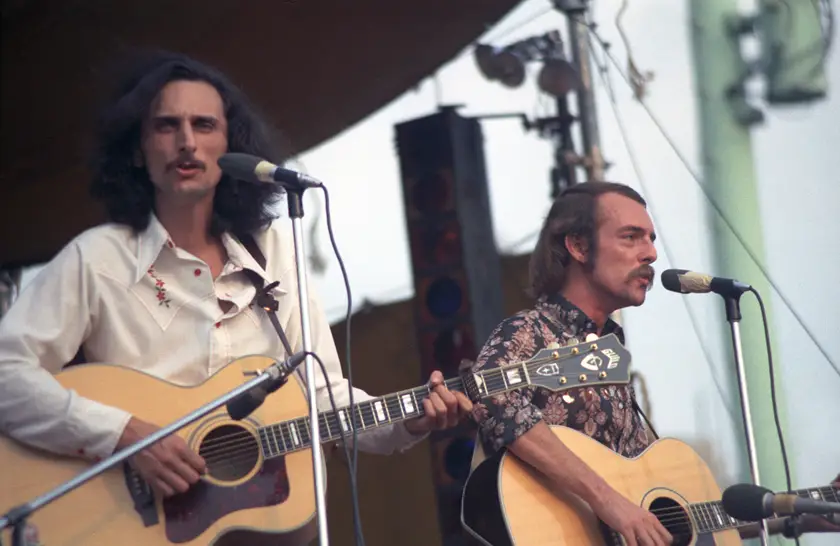
At first, One Toke Over the Line sounds like a carefree, lighthearted song with its gentle melody and smooth harmony. The folksy tune invites listeners to sing along, as it seems to tell a story of someone just “one toke over the line,” implying they’re slightly beyond the point of no return. However, when you look closer at the lyrics, it’s clear the song is about the darker side of drug use and the personal consequences of indulging in excess. The “toke” refers to marijuana, and the song paints a picture of someone who’s crossed a line they can’t undo.
While the song’s melody is warm and inviting, the lyrics reveal a much grimmer truth about addiction and the way substances can blur the line between fun and dangerous. The lighthearted tune disguises the anxiety and regret that accompany going too far, capturing the mood of the ’70s counterculture while subtly warning of the risks of overindulgence.


